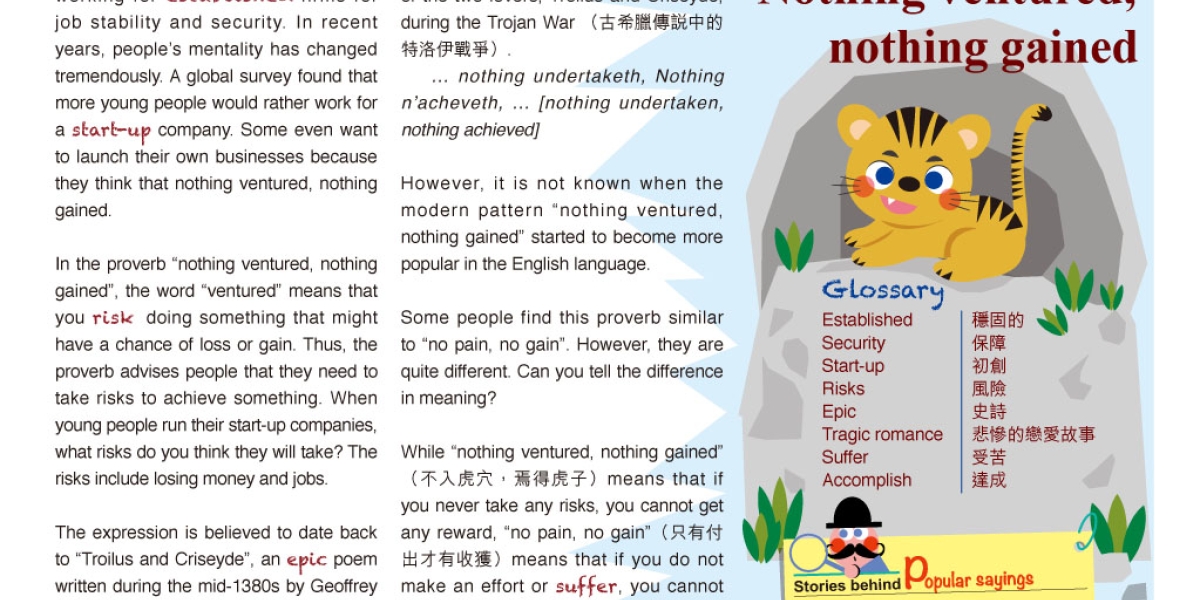
Nothing ventured, nothing gained
In the past, many people preferred working for established firms for job stability and security. In recent years, people’s mentality has changed tremendously. A global survey found that more young people would rather work for a start-up company. Some even want to launch their own businesses because they think that nothing ventured, nothing gained.
In the proverb “nothing ventured, nothing gained”, the word “ventured” means that you risk doing something that might have a chance of loss or gain. Thus, the proverb advises people that they need to take risks to achieve something. When young people run their start-up companies, what risks do you think they will take? The risks include losing money and jobs.
The expression is believed to date back to “Troilus and Criseyde”, an epic poem written during the mid-1380s by Geoffrey Chaucer, the greatest British poet. The poem is about the tragic romance of the two lovers, Troilus and Criseyde, during the Trojan War (古希臘傳說中的特洛伊戰爭).
… nothing undertaketh, Nothing n’acheveth, … [nothing undertaken, nothing achieved]
However, it is not known when the modern pattern “nothing ventured, nothing gained” started to become more popular in the English language.
Some people find this proverb similar to “no pain, no gain”. However, they are quite different. Can you tell the difference in meaning?
While “nothing ventured, nothing gained” (不入虎穴,焉得虎子)means that if you never take any risks, you cannot get any reward, “no pain, no gain”(只有付出才有收獲)means that if you do not make an effort or suffer, you cannot accomplish anything.
|
Glossary
|
|
|
Established
|
穩固的
|
|
Security
|
保障
|
|
Start-up
|
初創
|
|
Risks
|
風險
|
|
Epic
|
史詩
|
|
Tragic romance
|
悲慘的戀愛故事
|
|
Suffer
|
受苦
|
|
Accomplish
|
達成
|






